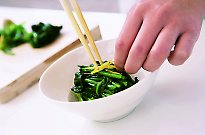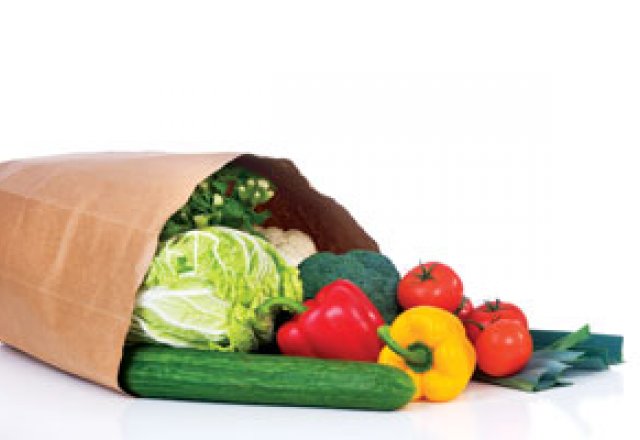Yep, we’ve heard it all before, but now an American researcher has created an entire lifestyle program based on the eating and living habits of the longest-living people in the world. Dan Buettner, who has appeared as a longevity expert on TV shows like Oprah, teamed up with National Geographic magazine to find the pockets around the world where people were living significantly better. The aim was to find places were people lived to 100 at rates 10 times greater than in the United States. The parts of the world where people suffered less heart disease and less cancer.
Living better, living longer
So where did he find these longevity hotspots? They were in places like Sardinia, Italy, where people were drinking wine with high levels of antioxidants, Ikaria, Greece, where the locals were drinking herbal teas that lower blood pressure, Nicoya, Costa Rica, where the diet of beans, squash and tortilla were keeping people healthier for longer. Easter Islanders, near Chile, stuck around longer thanks to their mutual support networks. And America’s Seventh Day Adventists were doing well thanks to a Biblically-inspired diet. Buettner calls these healthy hotspots the ‘Blue Zones’.
“The Blue Zones are demographically-confirmed and geographically-defined places where a remarkably high rate of the longest living people avoid many of the chronic diseases that kill the rest of us,” says Buettner. “These are places where people enjoy up to a three times better chance of reaching 100 than Americans do and don’t suffer a long demise at the end of their life.”
Some of the factors that help people live longer include connectedness to community, having a sense of purpose, being more active and eating a nutritious, plant-based diet.
So can us Westerners, despite our years of less-than-perfect diets and lifestyles, live as long as the people in these ‘Blue Zones’?
“If you can optimise your lifestyle, you can gain back an extra decade of life you’d otherwise miss,” claims Buettner.
What’s the secret?
So what is it about these ‘Blue Zone’ people that keep them living so long and healthy? Buettner says eating vegetables is a huge part of the secret. “In these Blue Zones, people suffer a fraction of the rate of heart disease and cancer that we do and it isn’t thanks to their genes, it mostly comes down to lifestyle.”
“A plant-based diet is an essential part of any nutritional program and evidence from the Blue Zones has shown that regular consumption of fruit and vegetables aids quality of life and longevity. Certainly, the ‘Blue Zone’ people make sure they’ve got plenty of vegetables and fruit in their diets. I believe it’s a personal choice, but my friends will tell you I often say, ‘the more meat you eat, the sooner you’ll die’,” Buettner says.
“The longest lived people are always lean, tend to eat their largest meal at midday, and stop eating when they’re 80 per cent full. “If Australians want to meet their objective in living long, disease-free lives, they need to start rethinking their choices, and a good start is eating much more fruit and veg.”
Staying connected
But it’s not just food that will keep us around until we’re in our 80s, 90s and beyond. Having friends and people who love us is just as important.
“Belonging to the right group of healthy-minded, supportive people might be the most powerful thing you can do to change lifestyle for the better,” says Dan. “In one study, looking at the impact of marital status, ties with friends and relatives, club membership and level of volunteerism on how well older people aged, those with the most social connectedness tended to live longer.”
He says it’s time to start looking at ways of widening and strengthening your social circle.
“Support each other and practice a healthy lifestyle together. It’s much easier to adopt good behaviors when people around you are practicing them. Be likeable – it will afford you a social network, frequent visitors, and de facto caregivers. Identify your inner circle and create time together,” Buettner advises.
Eating your way to a long life
Eating healthy foods will no doubt help you live longer, but of course the diet you choose depends on your circumstances, location and preferences. Buettner says eating healthily for longevity is an individual thing. “Again, I think that’s a personal choice and people need to eat what feels right for their body,” he says. “The cultures with the longest-lived people eat a simple diet from their gardens that does not include salty snacks or soda pop. Eat four to six vegetable servings a day, lead with beans and eat nuts every day.”
He says one culture that has more centenarians than any other in the world – the Okinawans (who live on an island off Japan) – have some wise advice when it comes to healthy eating.
“The Okinawans have the adage, 'hara hachi bu', which is a reminder to stop eating when your stomach is 80 per cent full,” he says. “To assist you with this practice, make food look bigger, use smaller plates, make snacking a hassle, eat more slowly and have a seat. If you can enjoy a meal with health conscious, supportive friends or family members, you’re really doing well.”
It’s your choice
It’s up to you how you live and how long you live. Your quality and length of life are only partly determined by your genetics - according to Buettner, about 25 per cent. The rest depends on your lifestyle and diet. “The calculus of ageing offers us two options: we can live a shorter life with more years of disability, or we can live the longest possible life with the fewest bad years. As my centenarian friends showed me, the choice is largely up to us.”
Photo credit: istock/thinkstock




